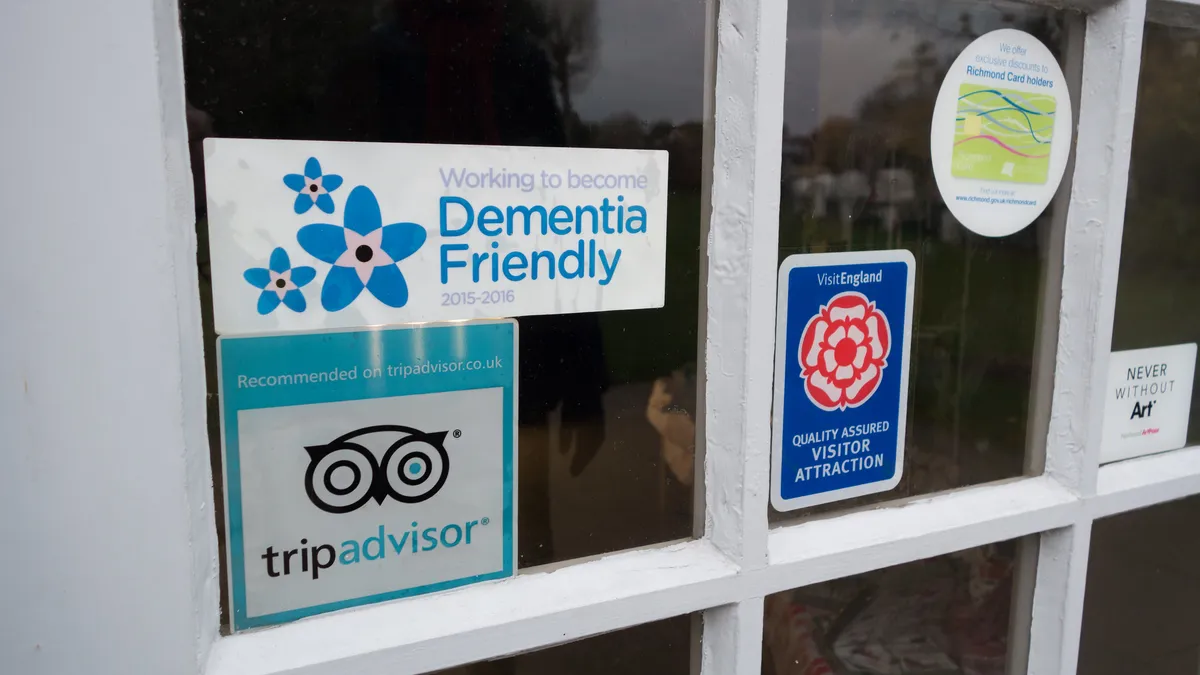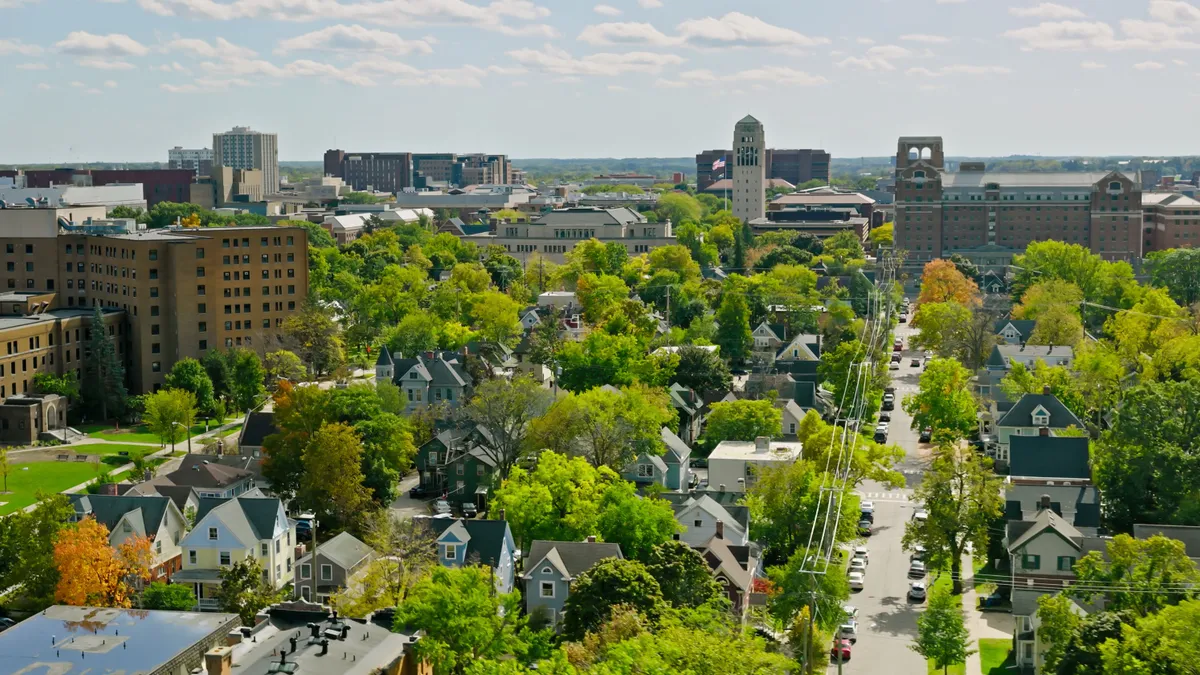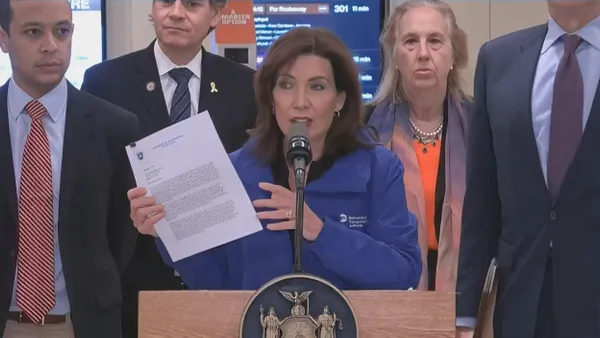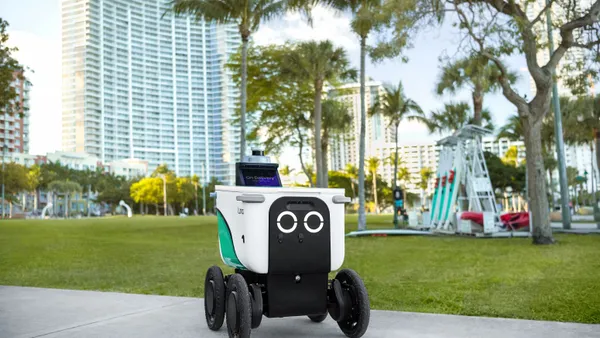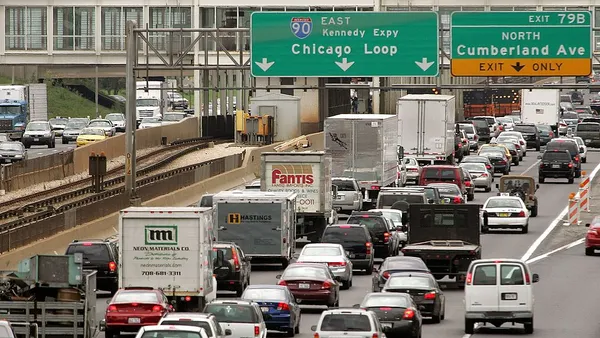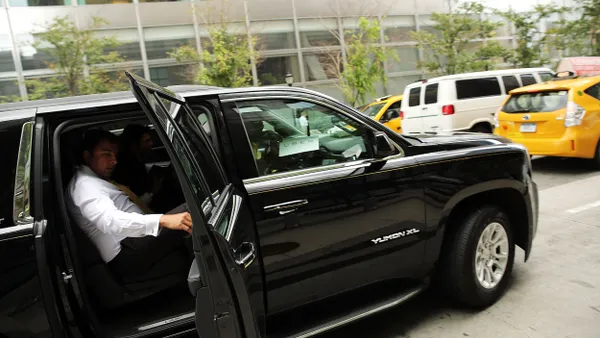Dive Brief:
- Alexandria, VA officially declared itself a dementia-friendly city after several years of developing a Strategic Plan on Aging, spurred by the White House's 2015 Conference on Aging. The city will implement the plan, developed by the Alexandria Commission on Aging, until 2021.
- Alexandria joins a national network of over 200 cities working to train businesses, citizens and government officials, optimize infrastructure and develop technology to help an aging population, aided by Dementia Friendly America.
- The strategic plan is modeled after Bruges, Belgium, Alexandria Mayor Justin Wilson told Smart Cities Dive. Bruges is widely considered to be the leader and example of a dementia-friendly city.
Dive Insight:
As concerns mount over a growing aging population without tools to support it, some cities are looking to designate themselves as "dementia-friendly," to ensure that not only the elderly, but their caregivers, are supported.
The idea of a "dementia-friendly" city began in the United Kingdom, and now is transforming hundreds of communities in the U.S. The organization Dementia-Friendly America, part of the National Association of Area Agencies on Aging (n4a), has taken over the effort.
"There's a growing number of folks looking to age in place. The aging population is saying, 'I don’t want to leave.' So we are building a system to do that," Wilson said.
The city's needs assessment and plan covers six categories: social participation, respect and social inclusion; housing; transportation; communication; health and community services; civic participation and employment.
While a major part of the plan is training service workers to work with people with dementia and the elderly, says Jane King, chairwoman of the Alexandria Commission on Aging, the city hopes to implement technology that can help make some things easier.
"The possibilities are endless. I feel like we have a tiger by the tail," King told Smart Cities Dive.
A big focus in the coming years will be transportation, especially public transportation. Senior citizens who can't drive may have trouble getting onto busses and paying the fee, as well as navigating to the bus stop.
"Transportation is a significant challenge, and technology can help narrow some gaps," Wilson said. The city has a Vision Zero goal to eliminate all traffic injuries and deaths by 2028, and part of the plan involves continuing to conduct walkability audits and improving high-crash intersections.
The city also enrolled in Smart911 last year, a free service where citizens or their caregivers can create profiles that make it easier for emergency service workers to locate them during a crisis.
"We need to put the structure and systems in place to handle dementia," said Wilson.
King said the most crucial element of becoming a dementia-friendly city was working with the AARP to create the plan. AARP has an established process to help cities do this, which Alexandria relied on. AARP encouraged King to make a strategic plan that was "ambitious, but realistic."
"We are really just at the starting point," King said.


